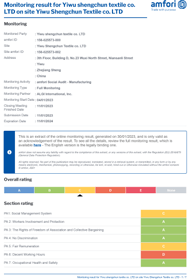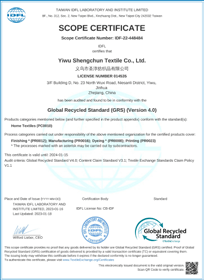علامة خاصة الشركة المصنعة للمناشف في الصين
- خدمة الحل الشامل
- موك منخفض للتخصيص
- المصنع الحقيقي بلا وسيط

كميات صغيرة، وفورات كبيرة.
تلبية احتياجاتك بحد أدنى للطلب لا يقل عن 500 قطعة فقط، مما يؤدي إلى تحسين تكاليف المخزون لديك.
حلول مخصصة حسب الطلب
تخيل شعارك على مناشف فاخرة. كل منشفة ليست فقط ذات جودة عالية - بل هي فريدة من نوعها.
جودة مضمونة، أفضل قيمة.
جميع مناشفنا حاصلة على شهادة ISO وSGS وغيرها - مما يضمن لك الحصول على الأفضل فقط.
شركاؤنا
اكتشف جميع التطبيقات من مناشفنا الفاخرة
استكشف مجموعتنا الشاملة من المناشف المصممة بدقة فائقة
لتلبية الاحتياجات المتنوعة لمختلف الصناعات والإعدادات المهنية.
التخصيص طلبك-أضف شعارك!
مطبوعات حادة: تقنية متقدمة لشعارات واضحة تدوم طويلاً.
مرونة التصميم: مواضع وأحجام وألوان متعددة لتتناسب مع علامتك التجارية.
صُممت لتدوم طويلاً: مناشف عالية الجودة تحافظ على شعارك نظيفاً أصيلاً.
علامة تجارية كاملة: أضف شعارك إلى صناديقنا المميزة أيضاً.

اكتشف إنتاج الخبراء الرحلة
تضمن منشآتنا المتطورة وأساليبنا الدقيقة أن كل منشفة تلبي أعلى معايير المتانة والأداء.
اختبر التفاني وراء كل التفاصيل في منشفة تريند - حيث تلتقي الجودة مع الحرفية.
التميز في الصياغة: لمحة عن إنتاجنا للمنشفة
تعرض صورنا المذهلة كل زاوية وتفاصيل مصنعنا.








لدينا الشهادات والاعتمادات
معتمدة بمعايير عالمية لضمان الجودة والسلامة والموثوقية.





ما لدينا الشركاء العالميون هل تقول؟
لقد عقدنا شراكات مع شركات في مختلف الصناعات، حيث نوفر مناشف عالية الجودة تفوق التوقعات.
ولكن لا تثق بكلامنا فقط. اقرأ ما يقوله عملاؤنا الراضون عن خدماتنا.



أهم الأسئلة الشائعة
موك القياسي لدينا هو 500 وحدة. ومع ذلك، نقدم مرونة للظروف الخاصة. اتصل بنا لأي متطلبات مخصصة.
نعم، نحن نوفر خيارات وضع العلامات الخاصة للشركات التي تبحث عن علامة تجارية مخصصة على مناشفنا عالية الجودة.
الجودة هي أولويتنا القصوى. تخضع كل دفعة لعمليات صارمة لمراقبة الجودة وجميع مناشفنا حاصلة على شهادة ISO وSGS وغيرها.
نحن نتعاون مع مزوّدي خدمات لوجستية مرموقين لحلول الشحن المختلفة، بدءاً من التسليم السريع إلى الشحن البحري. تستغرق المهل الزمنية القياسية من 2 إلى 4 أسابيع، مع توفر خيارات الشحن السريع عند الطلب.
بالتأكيد! نحن نشجع العملاء على اختبار منتجاتنا بشكل مباشر. اتصل بنا، وسنقوم على الفور بترتيب حزمة عينات لمراجعتها.
اتصل بنا
- info@toweltrend.com


